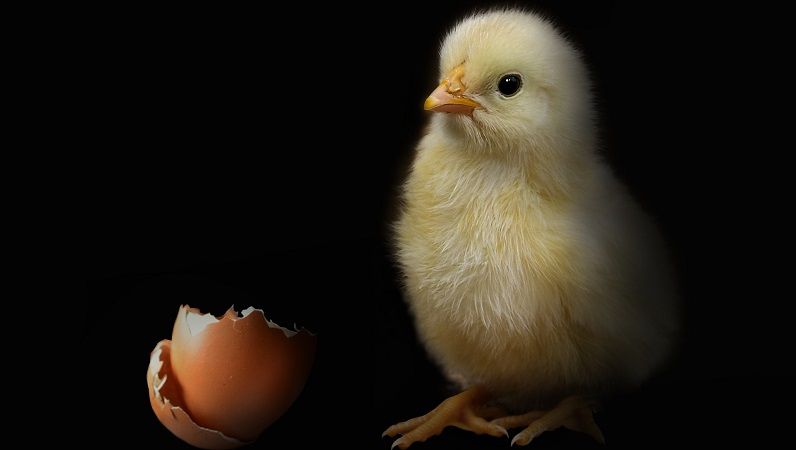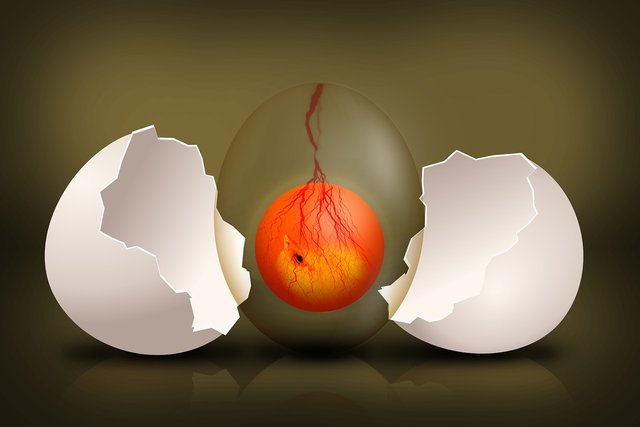Chicken or the egg - Which came first?
Hi guys! You surely heard about this dilemma - which came first? Chicken or the egg? The phrase is mainly used as a metaphor to describe a situation where is unclear which of the two events involved represents cause and which effect.
However, why not take it a little bit more literally - shall we?

Evolution
Well, let’s take a look at evolution. But first thing first? What is evolution? The definition: Evolution is the change in heritable characteristics of biological populations over successive generations. So, basically some changes in population of organisms that are visible throughout time. Evolution is driven by natural selection - thus adaptive traits are being passed to next generations. In the evolutionary sense chicken as we know it today is just an offspring of long evolutionary line of its predecessors. And if we trace this evolutionary line way back into the past we will stumble upon creatures that did not lay eggs. This means that in the light of evolution of chicken the chicken was first!

Eggs everywhere
If the question does not specifically refer to chicken eggs, but to eggs in general, then the situation is a little bit different. You see chickens are domesticated descendants of so called red junglefowl. Yes, hearing this for the first time myself. Well, the species looks like a chicken and you can’t blame it really - it was first domesticated around five thousand years before, so we cannot expect a huge evolutionary jump (even though with other species we did wonders - like corn!). So, let’s say that chickens are 5000 years old. Eggs, in general, appeared around 320 million years ago. Hmm, doing simple math I thus deducted that in this sense eggs were first.
But what about chicken eggs?
Now the situation gets interesting! What if we think about chicken eggs specifically and not eggs in general. The answer might surprise you - still egg! Why? Well, when two organisms mate and produce offspring small mutations may occur and thus the offspring may exhibit some new trait or traits. How came the first chicken to be? At some point at time a chicken-like animal that we can call proto-chicken mated with another proto-chicken. However due to small mutations a creature that hatched from the egg of these proto-chicken was an actual chicken! Funny thing is how to define a chicken egg. Is the egg defined by the parent or the offspring? If a giraffe laid an egg from which unicorn hatched, would it be a giraffe egg or unicorn egg? Hmmm? So, in this sense the chicken egg was first - laid by a bird that was not a chicken, but rather a "proto-chicken". But! Maybe the egg itself was only a proto-chicken egg that contained the first chicken - so, in this sense the chicken was first!

Source
Concluding remarks
Are you team chicken or team egg? Well, in the end it does not really matter, however it is a nice thought to bend your mind for a while! I hope you enjoyed reading this article and learned something new! Below is a great video made by AsapSCIENCE about this question, go and take a look!
Have a great day!
I am for Team egg! Otherwise as the video says we are just arguing semantics on the definition of a chicken egg. For evolution to occur mutations must occur in the germline (eg. eggs and sperm) not somatic cells.
True, but I also like the evolutionary point of view, where there were organisms that produced offspring without laying eggs and thus chicken ancestors were first and eggs second.
Haha, but yes, basically in the argument chicken vs egg - egg wins. :)